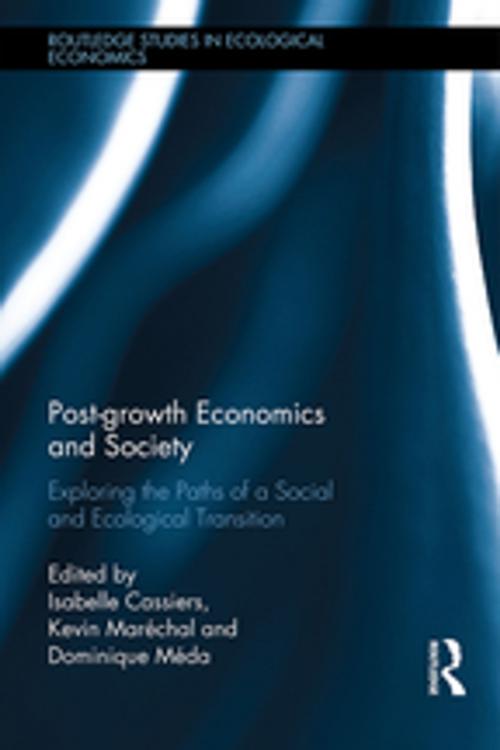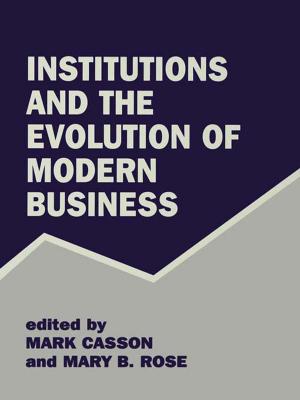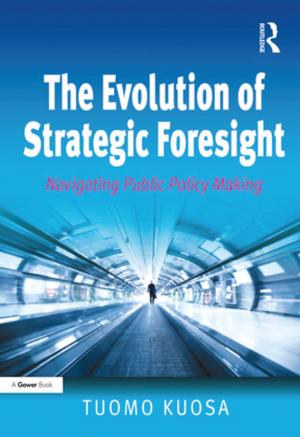Post-growth Economics and Society
Exploring the Paths of a Social and Ecological Transition
Business & Finance, Economics| Author: | ISBN: | 9781351382977 | |
| Publisher: | Taylor and Francis | Publication: | October 30, 2017 |
| Imprint: | Routledge | Language: | English |
| Author: | |
| ISBN: | 9781351382977 |
| Publisher: | Taylor and Francis |
| Publication: | October 30, 2017 |
| Imprint: | Routledge |
| Language: | English |
We stand on the threshold of a "post-growth" world – one in which the relentless pursuit of economic growth has ceased to constitute a credible societal project. The symptoms that mark the end of an era are clear and incontrovertible: a return to the regularities of the past is illusory. The pursuit of economic growth no longer constitutes a credible societal project for ecological, social, and geopolitical reasons.
Edited by an impressive array of experts, this book identifies several areas in which we must fundamentally rethink our societal organisation. They ask what it means to abandon the objective of economic growth; how we can encourage the emergence of other visions to guide society; how global visions and local transition initiatives should be connected; which modes of governance should be associated with the required social and technological innovations. Alongside the necessary respect of ecological limits and equity in distribution, the promotion of autonomy (involving all in the building of socio-political norms) could serve for guidance. The topics addressed over the chapters range from the future of work to the de-commodification of economic relations; the search for new indicators of progress to decentralized modes of governance; and from the circular economy to polycentric transitions. Each contribution brings a unique perspective, a piece of a larger puzzle to be assembled.
Post-growth Economics and Society is an important volume to those who study ecological economics, political economy and the environment and society. It invites theorists as much as practitioners to re-explore the roots of our societal goals and play an active role in the systemic shift to come.
We stand on the threshold of a "post-growth" world – one in which the relentless pursuit of economic growth has ceased to constitute a credible societal project. The symptoms that mark the end of an era are clear and incontrovertible: a return to the regularities of the past is illusory. The pursuit of economic growth no longer constitutes a credible societal project for ecological, social, and geopolitical reasons.
Edited by an impressive array of experts, this book identifies several areas in which we must fundamentally rethink our societal organisation. They ask what it means to abandon the objective of economic growth; how we can encourage the emergence of other visions to guide society; how global visions and local transition initiatives should be connected; which modes of governance should be associated with the required social and technological innovations. Alongside the necessary respect of ecological limits and equity in distribution, the promotion of autonomy (involving all in the building of socio-political norms) could serve for guidance. The topics addressed over the chapters range from the future of work to the de-commodification of economic relations; the search for new indicators of progress to decentralized modes of governance; and from the circular economy to polycentric transitions. Each contribution brings a unique perspective, a piece of a larger puzzle to be assembled.
Post-growth Economics and Society is an important volume to those who study ecological economics, political economy and the environment and society. It invites theorists as much as practitioners to re-explore the roots of our societal goals and play an active role in the systemic shift to come.















